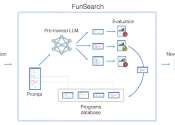DeepMind's AI programming tool AlphaCode tests in top 54% of human coders
The team at DeepMind has tested the programming skills of its AI programming tool AlphaCode against human programmer competitors and has found it tested in the top 54 percent of human coders. In their preprint article, the ...









